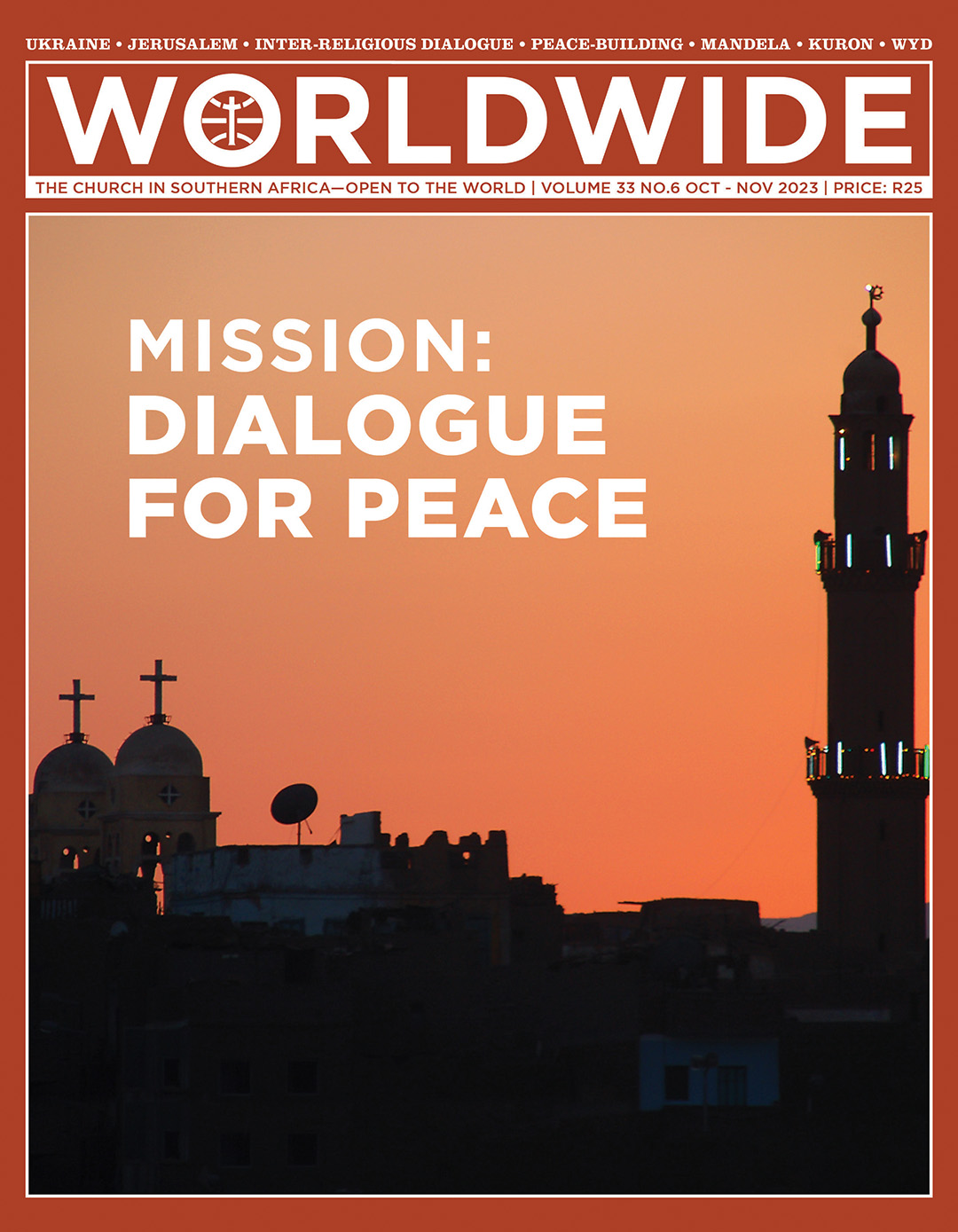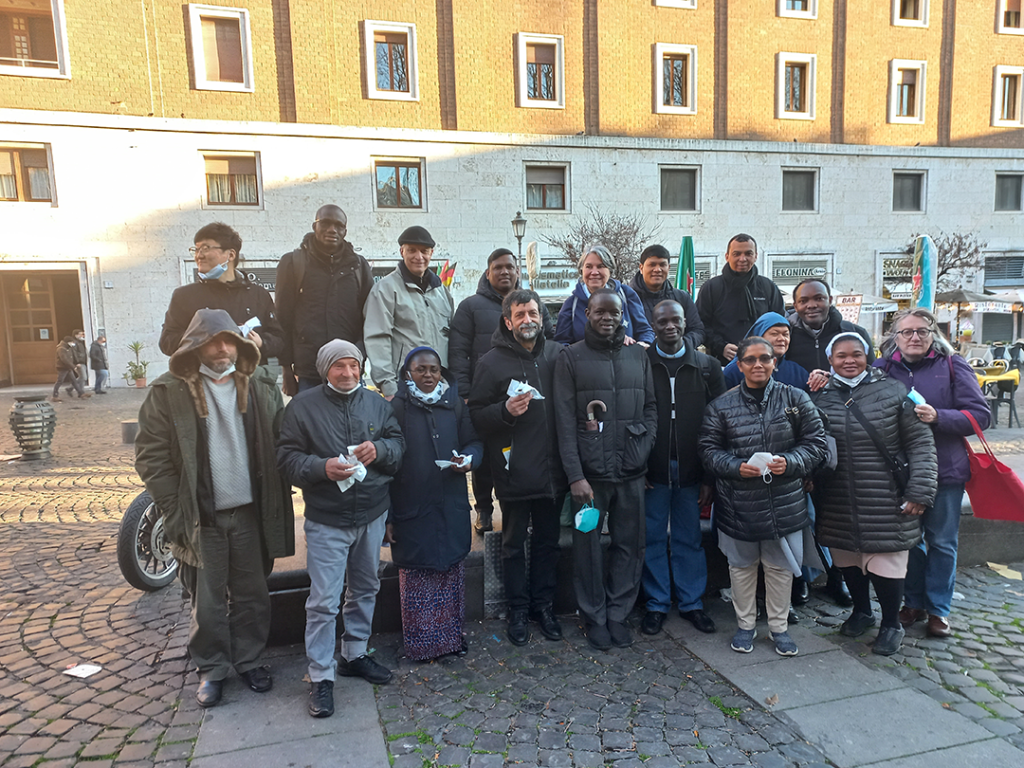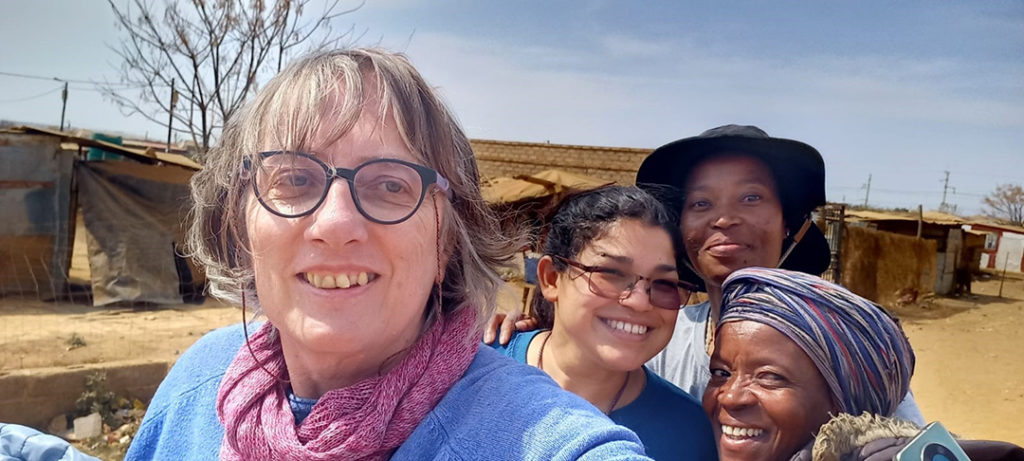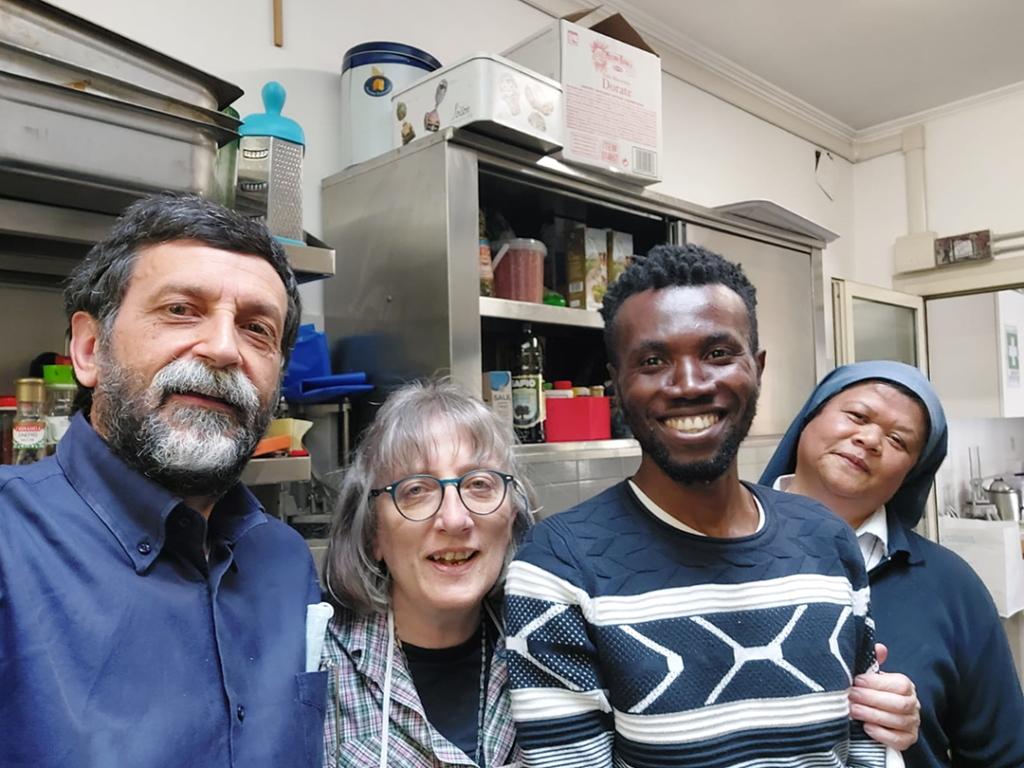
MISSION: DIALOGUE FOR PEACE
The Mosque minarets and church domes of the front cover, facing each other at twilight, transmit a sense of harmony and serenity. The two main religions of the world, Christian and Islam, are called to a mutual understanding and peace-building for the well-being of humanity. The essence of its traditions, far from fundamentalist interpretations, should lead their faithful to pursue together the values of justice and fraternity.
CHALLENGES • COLLABORATION

Mission Is Done Together
Missionary life calls for witness to collaboration. Sr Ida Colombo, a Comboni missionary from Italy, shares her own experience, inspired by the Word of God and the charism of her founder, working together to achieve ‘something greater’.
BY IDA COLOMBO, CMS, MAHUBE VALLEY, PRETORIA
FROM THE beginning of my vocation, I have always been convinced that mission should be done together. For nearly 30 years of Comboni missionary life, in different contexts, I have always tried to live out this principle.
Why do I believe in collaboration? Before becoming a Comboni Sister I worked as a secretary in an important metalworking company in Milan (Italy) and already there I learnt to collaborate with various trade unions to improve the working conditions of the labourers.
I experienced Jesus who is not only in the Eucharist, but also in the poor who are, as the Church Fathers remind us, his Vicars
I would like to emphasise the meaning of collaboration—taken from the world of management— which is defined as “a relationship between two or more entities working together to produce ‘something better’ than what they could do alone”.
Comboni’s understanding of collaboration
As Comboni missionaries, I believe that our being and doing mission together is rooted in our very nature—being in relationship—, in the Word of God and in the legacy left by our founder Daniel Comboni. He wanted the whole Church to commit herself as one body to the evangelisation of Africa: “All the existing works aimed at helping the Africans, which are all God’s works, currently operating separately from each other and producing scarce and incomplete results, would thus be united together and focused on the single purpose of planting the faith firmly in the heart of Africa. They would acquire greater vigour, develop more easily and become most effective in achieving the desired objectives. (Saint Daniel Comboni to Cardinal Barnabò in 1865 – WSDC 1100).
Comboni made many different calls for collaboration and, looking at his example, I felt it was important for me to grow in this spirit. From my first missionary experience in Peru (1994), it became clear to me that the first great evangelical witness is to carry out the mission together: first as a community then with all the various entities in the area.

Complementarity for God’s Kingdom
In Peru, our community was multicultural and people asked us how it was possible that such different sisters could live in the same house and carry out pastoral work. Furthermore, the experience of working with Comboni missionaries, missionaries from other Institutes and local lay people, was very beautiful. The image of the polyhedron (recalled several times by Pope Francis) was not yet fashionable, but we tried together, in our own diversity, to offer something, the best we could, to transform the reality and understand what God wanted from us at that given moment.
Few years later, during my experience in Europe, I realised how important it was to discern and collaborate in a context which was changing rapidly due to migration and secularisation. This work involved missionary animation, youth pastoral work and migration. It was carried out not only as a Comboni Family, but also with the various Missionary Institutes. For example, in Granada (Spain), the laity were also involved as we sought together for ‘something better’ than what we could do alone.

In Rome, as General Councillor (2016-2022), I was committed in the process we had begun on our collaborative ministry as Comboni Family: Fathers, Sisters, Brothers, Seculars and Lay Comboni missionaries. It was a very beautiful experience which was also marked by the suffering of Covid, which did not allow us to always meet physically, though we had many virtual meetings. This living in synodality has enriched us and made us understand more clearly that our presence should give priority to the people who have been marginalised. It should also always be in collaboration with all the local people, both lay and religious.
Welcoming the homeless and refugees
In Rome, the experience with the Saint Egidio community, religious from various congregations and lay people, led me to very beautiful encounters of friendship among ourselves and with the homeless. The experience has been going on for years and even if some of us are missing, the group continues: this is the beauty of working together. I understood how important it is to be open to others without judging them. Even if the person is different, one discovers the richness of his or her humanity and every small gesture received transforms us and brings us closer to God. I experienced Jesus who is not only in the Eucharist, but also in the poor who are, as the Church Fathers remind us, his Vicars.
From my first missionary experience in Peru, it became clear to me that the first great evangelical witness is to carry out the mission together
Welcoming in our house—together with my sisters of the General Council— the two Ukrainian families in collaboration with Caritas and some volunteers from our parish in Rome, made us feel like an extended family committed to giving “something better” to those we welcomed that we would not have managed to do alone. We first received this “something better,” ourselves. Now I am even more convinced that, in the European context, the proclamation of the Good News is identified with welcome and collaboration.
Currently, I have been in South Africa for a few months with the desire to experience collaboration here as well. This will involve building relationships. I still have a dream in my drawer that has not yet been realised: a community where Combonians, men and women and lay missionaries may live together with a common missionary project to produce ‘Something Better’.

